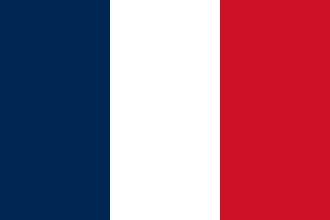Now in its twelfth year, Class 46 is dedicated to European trade mark law and practice. This weblog is written by a team of enthusiasts who want to spread the word and share their thoughts with others.
Click here subscribe for free.
Who we all are...
Trends in trade mark invalidity and revocation procedures in France
 INPI, the French IP office, has published analysis of the first five years of administrative invalidity and revocation procedures in France.
INPI, the French IP office, has published analysis of the first five years of administrative invalidity and revocation procedures in France.
The administrative procedures became available on 1 April 2020. The first applications came in straightaway and the first two decisions on the merits were published on 5 November 2020.
Fiver years on there have been almost 2,200 applications (an average of 440 each year) and more than 1,800 decisions (400 a year). About 60% of cases are invalidity applications and 40% revocation applications.
Microenterprises and SMEs have filed more than 35% of applications, closely followed by foreign companies. The most frequent targets of proceedings have been microenterprises and SMEs (38%) and private individuals (37%).
IP professionals assist applicants in just over 90% of cases: 51% of cases involve a lawyer, 41% an IP attorney and 7% no representative.
In “nearly 15” decisions, INPI has held that it does not have jurisdiction because of a pre-existing court dispute. Twice it has found an abuse of process by the applicant.
The majority of invalidity applications are based on relative grounds only (70%), with 20% based on absolute grounds only and the remaining 10% on both relative and absolute grounds.
About 60% of applications are based on several grounds of invalidity. Bad faith is cited in more than 20% of invalidity applications, either on its own or accompanied by a relative ground.
In revocation proceedings, lack of use is the ground most frequently cited. INPI has also received about 30 applications based on the ground that a trade mark has become a common name or has become liable to mislead the public.
The average duration of proceedings from receipt of application to decision is 8.5 months but cases that involve a hearing can take up to 17 months. About 30% of proceedings are terminated without a decision on the merits.
In 85% of decisions, the proceedings were recognised as totally or partially founded, leading to more than 1,000 trade marks being totally or partially cancelled.
In relative grounds cases, over 85% of cases related to infringement of trade mark rights are accepted, but only around 50% of those based on rights in company names.
On absolute grounds, more than a quarter of decisions have involved bad faith and 50% of these cases have been justified, compared to only 30% of applications based on other absolute grounds.
Only 4% of revocation applications have been dismissed outright, compared to 74% of proceedings being deemed fully justified and 22% partially justified.
More than half of decisions rule on costs, with the average amount awarded being €680.
INPI says the Cancellation Unit includes 10 full-time equivalent staff and a manager.
INPI states in its report: “There has been an increase in the number of voluminous files, potentially arising from long-standing disputes. These cases are complex because of the multiplicity of players and proceedings, and the growing volume of documents submitted for consideration. This may be a sign of the increasing acceptance of this tool by users and their confidence in these new administrative procedures.”
The information on administrative procedures is included in the 13th issue of the INPI Law Journal, which is published in English several times a year. The INPI Law Journal is based on PIBD, which has been published in French by INPI since 1968. PIBD can be read online here.
Posted by: Blog Administrator @ 15.21Tags: INPI, invalidity, revocation,


 Sharing on Social Media? Use the link below...
Sharing on Social Media? Use the link below...Perm-A-Link: https://www.marques.org/blogs/class46?XID=BHA5374

